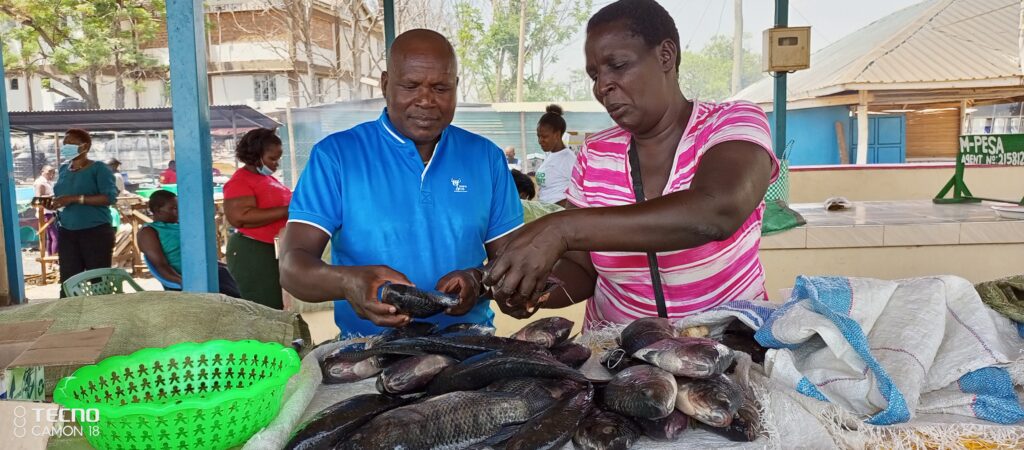It is a bright Friday mid-morning, and this writer arrives at Dunga Beach, in Kisumu to meet Domnic Atendo, a former chairman of Dunga Community.
Born and raised in this village, Mr Atendo has the history of the famous beach dating from the pre-colonial period.
The once bushy lakeshore is now standing out as the only public beach where public can access the shores of Lake Victoria, following the fencing off of other shores by government and private developers.
“All these were bushes, and up here were farms where our grandfathers planted different types of crops,” Atendo narrates as he stretches his hands to get the best gesture for his narration.
He adds: “This place called Paw Ondiek (hyena’s fields) used to be the playground for hyenas and other wild animals. Today it is being used to spread fishing nets and drying of fish.”
We then moved to one of the shades near the beach, where we sit down to get the history of Dunga Beach.

Origin of the name Dunga
According to Atendo, the name ‘Dunga’ originated from India in the early 1900.
He says when Kenya-Uganda Railwas reached Kisumu, then known as Port Florence, the Indians who were building the train settled in Kisumu.
Some of the Indians moved along the lake shores, and discovered the beach on the southern side of Kisumu Central Business District.
“The Indians had been fishing at a beach in India called Dunga. So when they arrived here and discovered this beach, they named it Dunga, as they felt it would serve them as it was with their Indian Dunga,” said Atendo.
Internet searches place India’s Dunga as located in the region called Haryana, about 200 kilometres from capital New Delhi.
“When the Indians came, there was a community called Wakerewe from Tanzania, which was also a fishing community at across a nearby Island,” he said.
Multicultural Dunga
After a few years, the people of Atendo’s great grandfathers from Alego, in the now Siaya County begun to move to Dunga, with many of them getting employed by the Indians.
In the mid-1930s, a group of Manyala Community from Busia arrived, followed by Kassagam traced from Vihiga. Then the people of Kano, Kanyakwar and Sakwa moved in.
“That is how Dunga became multicultural community separated by blood, but bonded by fate,” said Atendo.
According to Atendo, the people from different communities lived as a family, but could intermarry, further bonding them.
Today, all these communities speak the Luo language, and it is not easy pointing out which of the clans they come from.
“You are likely to find someone marry from a doorstep neighbor, because they are not related by blood, but have been staying together for years,” he said.
But today, Dunga Beach stands out among the fish landing beaches within Kisumu City, and is fast developing.
In the past two decades, the beach has got one of the best access roads, electricity, water, and other social amenities, a different picture of what it was when Atendo was growing up.
Atendo attributes the rapid development to a raft of measures taken by the residents and international well-wishers who identified the challenges the residents faced.
